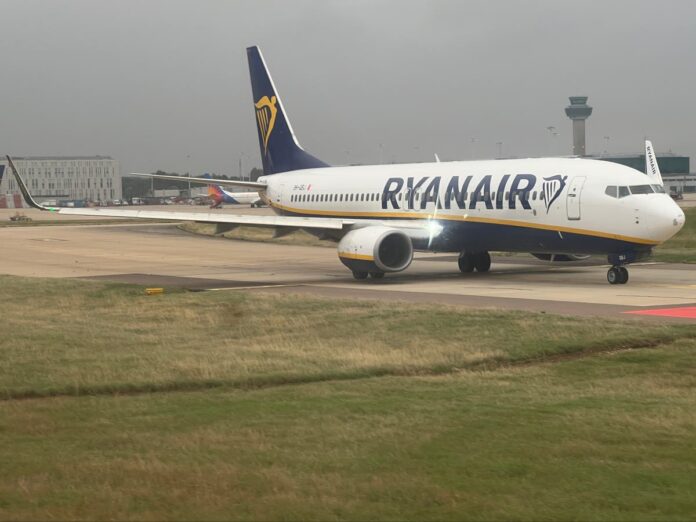Europe’s biggest budget airline made record profits over the summer – equivalent to almost £5,000 per minute – with passengers paying significantly more for peak-season flights.Ryanair has reported half year profits of €1.37bn (£1.23bn) between April and September, up 19 per cent on the same spell in summer 2019 – the last before the coronavirus pandemic.Michael O’Leary, Ryanair’s group chief executive, said fares in July, August and September were up 15 per cent compared with summer 2019.’The strength of the recovery has surprised us,’ he told BBC Today.’We see that huge pent-up demand of travel. We thought it would ease off in September, October as we came to the winter but so far to date there’s not much sign of it.’Forward bookings into Christmas look strong, and there seems to be people who have been locked up for two-and-a-half years are going back to work, they want to go and see friends and family again, and we are seeing them booking in stronger numbers and paying slightly higher air fares.’People do seem to have money and they’re spending it particularly on travel.’This will be the first Christmas in three years where people can reunite with their friends and family, and there seems to be a very strong appetite to do so.’Every time there’s a recession people don’t stop travelling, they trade down to the cheapest provider, which is Ryanair.’The lowest-cost provided always grows stronger in a recession.’Mr O’Leary said that the best way to reduce aviation’s environmental impact in Europe ‘would be fix the broken air traffic control [ATC] system’.He said: ‘We would eliminate 20 per cent of our fuel, we would eliminate 90 per cent of our flight delays.’So many flights and passenger are delayed every year either by ATC strikes or simply people not showing up to work on Saturdays and Sundays in air-traffic control systems.’In its result statement the airline said: ‘The recovery for the remainder of FY23 [to March 2023] remains fragile and could yet be impacted by new Covid variants or adverse geopolitical events such as Ukraine.’


